|
|
|
|
|
|
|
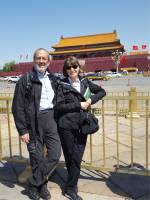 |
|
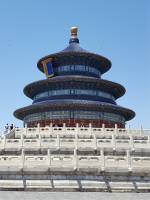 |
|
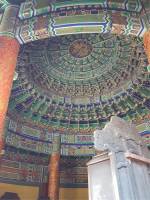 |
|
13 May
What
can you do, if you must spend many hours in Beijing before your arrival
and departure flights? Take a quick Airport Express ride to visit
Tienanmen square and the wonderful Temple of Heaven
|
|
|
|
|
|
|
|
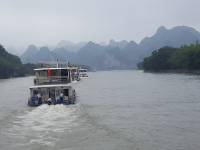 |
|
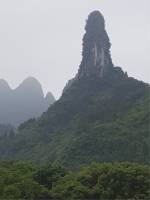 |
|
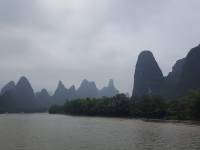 |
|
14 May
In
the morning we take a cruise starting from Guilin on the river Li, the
one famous in many pictures for the needle-shaped, tree-covered hills
surrounding the river. Too bad the weather was so cloudy!
|
|
|
|
|
|
|
|
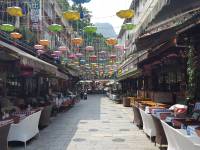 |
|
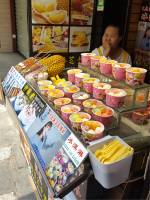 |
|
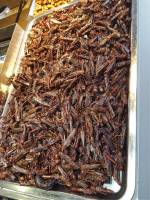 |
|
14 May
After
disembarking in Yangshuo we have the first close encounter with the
colorful Chinese markets, including the stand selling fried
grasshoppers (we only looked at them, nobody dared to taste!)
|
|
|
|
|
|
|
|
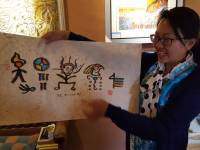 |
|
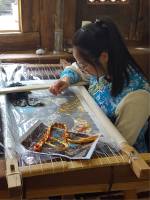 |
|
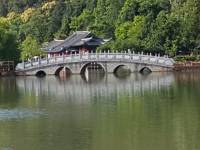 |
|
15 May
Once
landed in Lijang airport, before going downtown we visit a village
inhabited by the Naxi minority. They have their own way of writing with
hieroglyphs and are masters of embroidery. we also visit the idyllic
public garden of the Black Dragon
|
|
|
|
|
|
|
|
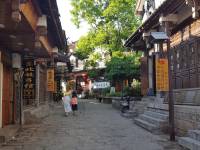 |
|
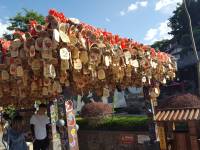 |
|
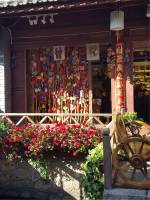 |
|
15 May
Here
we are finally in Lijang, the nicest town we saw in our journey. The
Old City is one big pedestrian zone, a labyrinth of winding alleys and
streetside streams of running water. An army of street cleaners keep
the place spotless. In the main square visitors hang wooden boards with
their wishes inscripted upon
|
|
|
|
|
|
|
|
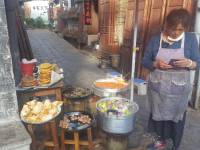 |
|
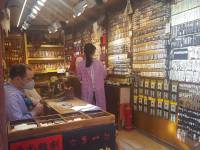 |
|
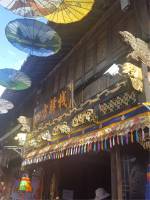 |
|
15 May
The
Old City is a sequence of very decorated and colorful shops and guest
houses, a real dream for photo enthusiasts. The place is lively but not
noisy, the shopkeepers don't pester you to force you to buy
|
|
|
|
|
|
|
|
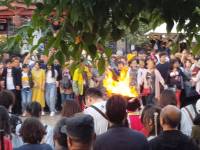 |
|
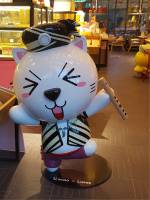 |
|
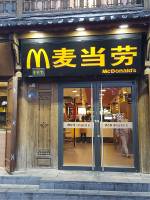 |
|
15 May
At
sunset the squares fill up with music and round dances, where
professional dancers and simple tourists merge together. Strolling
around you can find big manga dolls, or the ever-present Mc Donald's
|
|
|
|
|
|
|
|
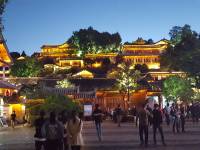 |
|
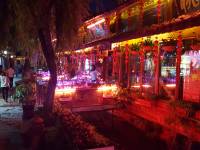 |
|
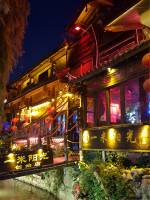 |
|
15 May
It's
anyway in the evening that you can enjoy the most fascinating show
offered by Lijang, when an eruption of multicolored lights fills up the
shop windows, outlines the rim of the roofs, shines behind the tree
leaves
|
|
|
|
|
|
|
|
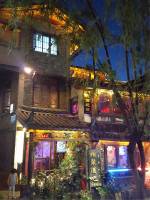 |
|
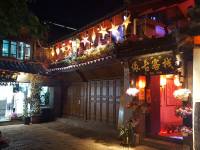 |
|
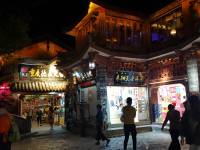 |
|
15 May
Restaurants, pubs and discos spread out a mix of eastern and western music, lively but never loud enough to hurt your ears
|
|
|
|
|
|
|
|
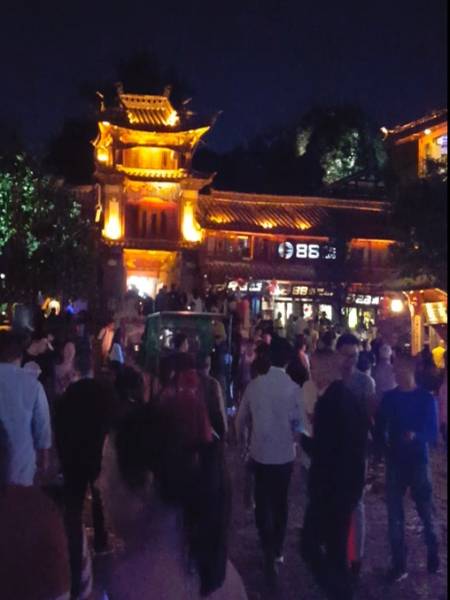 |
|
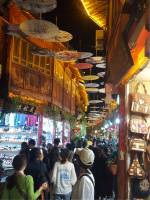 |
|
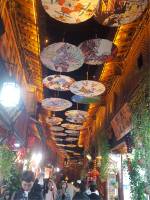 |
|
15 May
Until
late a lot of people mills around, both in the main square and in the
side streets, where fanciful decorations hover on the passers-by's heads
|
|
|
|
|
|
|
|
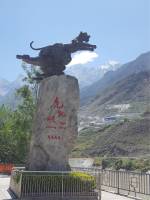 |
|
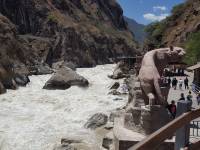 |
|
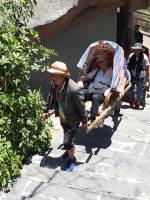 |
|
16 May
In
the morning we ride to the Leaping Tiger Gorge, where Yangtze river
flows turbulent. It is said that once a tiger stepped over the river
jumping on the rock sitting in the middle of the stream. Those who
don't want to climb the 600 steps to get back up can avail of
affordable palanquins
|
|
|
|
|
|
|
|
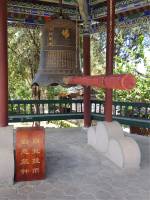 |
|
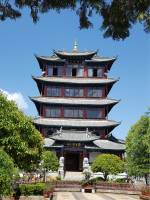 |
|
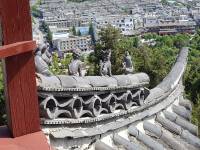 |
|
16 May
After
lunch we visit the Pavilion overlooking Lijang's Old City. It hosts a
huge bronze bell, and offers a nice view over the city's panorama
|
|
|
|
|
|
|
|
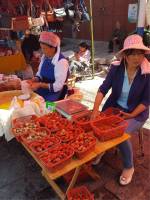 |
|
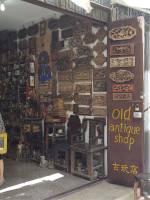 |
|
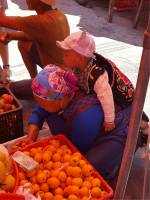 |
|
17 May
We
drive towards Dali and visit, while on the road, the Xizhou village
inhabited by Bai minority. The market is colorful as usual and many
shops offer wood carvings, the specialty of the local craftsmen
|
|
|
|
|
|
|
|
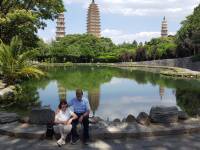 |
|
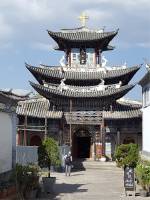 |
|
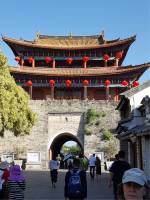 |
|
17 May
Once
in Dali we visit first the Three Pagodas Temple, Dali's main
attraction, in the city's outskirts. Then we walk through the city,
visiting the catholic church built by the French when Vietnam was their
colony, and the old South Gate in the walls, remained as it were at
Kublai Khan's times
|
|
|
|
|
|
|
|
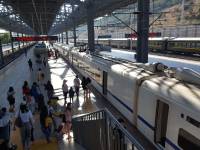 |
|
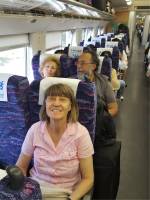 |
|
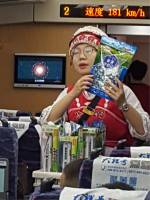 |
|
18 May
In
order to reach Kunming, Yunnan's capital city, from Dali we try the
experience of the Chinese high speed trains. They are fast and
comfortable, no less than our Italian Frecciarossa. The hostesses on
board pass by offering products of their boutique, like on the airplanes
|
|
|
|
|
|
|
|
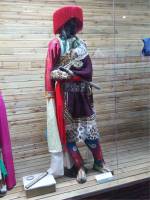 |
|
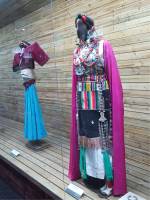 |
|
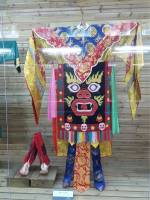 |
|
18 May
There
are 24 officially acknowledged ethnic minorities in Yunnan. The
Minority Museum in Kunming hosts a large exhibition of typical men and
women dresses, wedding clothes, shaman costumes, but also household
utensils, jewelry, musical instruments and much more
|
|
|
|
|
|
|
|
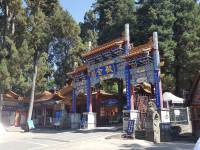 |
|
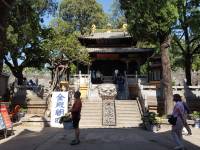 |
|
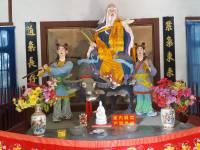 |
|
18 May
After
the Museum we reach the colorful Golden Temple, built in 16th century
under the Ming dinasty. Its main pavilion is entirely made in bronze,
with a total weight of more than 200 tons
|
|
|
|
|
|
|
|
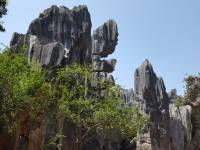 |
|
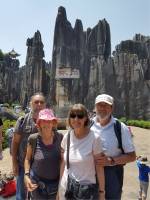 |
|
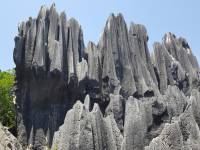 |
|
19 May
We
leave Kunming and drive to the Stone Forest, a large area where the
limestone rocks have been transformed, by million years of rain and
wind erosion, into an unbelievable collection of vertical shapes. We
then continue towards Janshui, our next destination
|
|
|
|
|
|
|
|
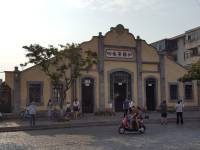 |
|
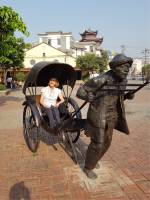 |
|
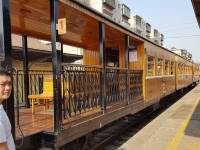 |
|
20 May
Most
of this day is dedicated to a train ride on the old narrow gauge
railway connecting Janshui and the village of Tuanshan, railway
nowadays only used by tourists. The old Janshui station, it too a relic
of the French presence in neighbouring Vietnam, is decorated by lovely
statues of ancient rail related jobs, like a rickshaw porter
|
|
|
|
|
|
|
|
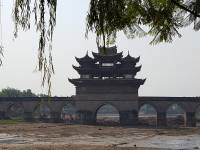 |
|
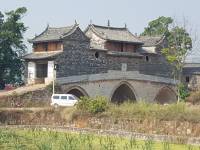 |
|
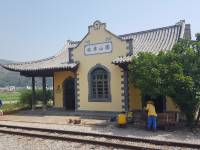 |
|
20 May
A
stop during the tourist train ride allows us to visit the Double Dragon
Bridge, so called because its sets of arches on the left and on the
right override two different rivers, that converge not far downstream.
Also Tuanshan small station is a colonial times relic
|
|
|
|
|
|
|
|
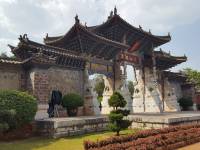 |
|
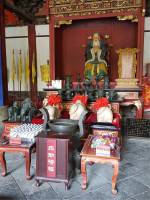 |
|
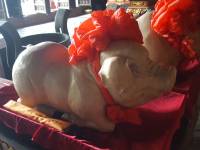 |
|
20 May
After
coming back to Janshui we visit the Confucian Temple, the second
largest of all China. At the feet of Confucius' statue lay the images
of his preferred animals: a sheep, a cow and a fat pig, all with a nice
red ribbon
|
|
|
|
|
|
|
|
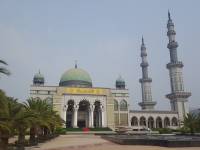 |
|
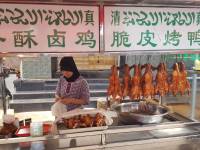 |
|
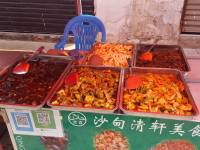 |
|
21 May
We
leave Janshui and ride to Shadian, a village inhabited by a large
community of Chinese muslims, the descendants of Kublai Khan's Mongol
troops, arrived here at mid 13° century. Shadian displays a huge
mosque, and a market where Arab and Chinese words and flavours coexist
on the same stalls
|
|
|
|
|
|
|
|
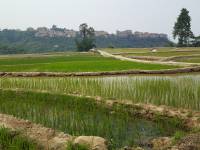 |
|
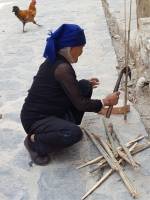 |
|
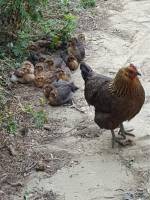 |
|
21 May
We
now finally climb towards the mountains where the Hani minority lives.
Their women wear a black costume with a blue turban. Hani people are
very skilled farmers of rice, that they grow in their typical terraces
created with geometric precision on the slopes of the mountain
|
|
|
|
|
|
|
|
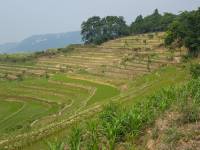 |
|
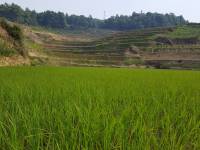 |
|
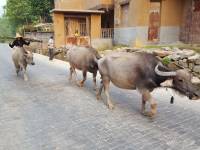 |
|
21 May
A
walk through the fields allows us to appreciate the cleverness by which
the Hani build the terraces. Each one has rudimentary but effective
locks, that allow to feed the right amount of water to the terrace. The
peaceful buffalos help with the plowing of the fields
|
|
|
|
|
|
|
|
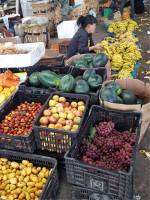 |
|
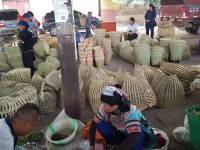 |
|
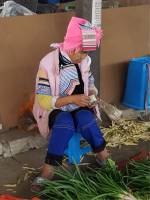 |
|
22 May
In
the morning we visit the market in Yuanyao, full of every type of
goods. Everything is exposed in well ordered rows, like in our
supermarkets: fruits and groceries, meat, cheese, wickerworks
|
|
|
|
|
|
|
|
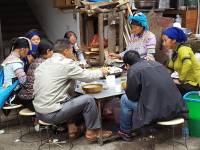 |
|
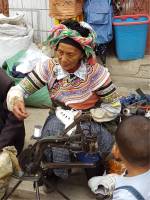 |
|
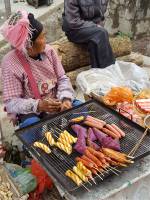 |
|
22 May
The
food is not only to be bought and taken home, there are also local
"fast foods" where the people sits around the same table and eats
indecipherable dishes that none of us dared to taste. A streetside
seamstress performs her art on the latest model of sewing machine
|
|
|
|
|
|
|
|
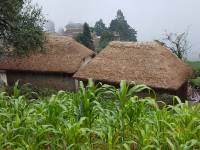 |
|
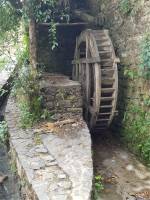 |
|
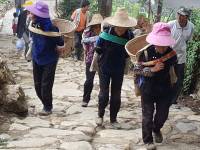 |
|
22 May
In
the afternoon we visit another Hani village, with its characteristic
mushroom-shaped straw roofs. The mill was once the heart of the
village, but now electricity arrived and the mill is just a souvenir of
past times. A casual encounter gives us proof that the Hani women and
not the men are here the hard workers, as our guide had told us
|
|
|
|
|
|
|
|
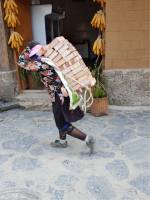 |
|
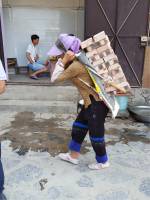 |
|
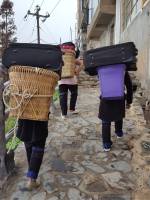 |
|
22/23 May
As
a matter of fact we later pass by a worksite where they are building a
new house, and who carries the bricks on their shoulders? No wonder
therefore if the next morning our baggage is brought back from the
hotel to the road above by three small but strong Hani ladies
|
|
|
|
|
|
|
|
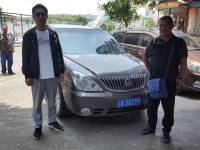 |
|
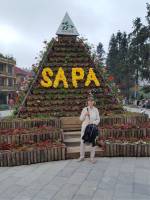 |
|
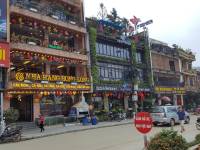 |
|
23 May
We
ride the last strectch in China up to the Vietnamese border, where we
say goodbye to our guide Tom and our driver. We cross the border on
foot through the no-man's-land bridge over the Red River. On the other
side we are welcomed by our Vietnamese guide and driver who bring us to
Sapa, nice mountain town where French colonizers spent time to find
comfort from the heath of the plains
|
|
|
|
|
|
|
|
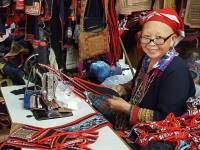 |
|
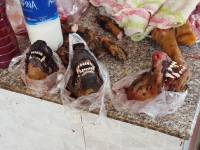 |
|
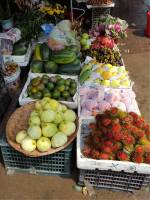 |
|
24 May
Sapa
is the main town in the mountain area of northern Vietnam, the area
famous for the liberation war against the French dominion (Dien Bien
Phu lies close by). At the city market you can have enjoyable views,
like the pleasant old seamstress, as well as disturbing ones like the
dog heads on the butcher stall
|
|
|
|
|
|
|
|
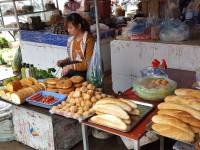 |
|
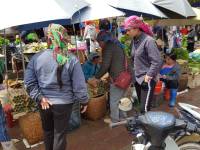 |
|
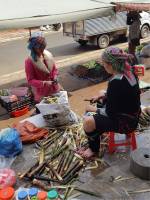 |
|
24 May
As
in all markets you can find bakery shops and above all fruit and
grocery resellers, both familiar to us Westerners and absolutely
unknown. Saleswomen and buyer ladies wear dresses and hats typical of
their minorities
|
|
|
|
|
|
|
|
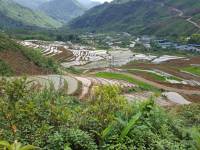 |
|
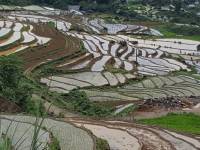 |
|
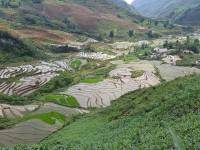 |
|
24 May
After
the market we leave the town for a tour through the fields and the
minority villages. While in China we had observed the rice fields
walking in the middle of them, here we can finally see them from above
and their meandering borders are a mesmerizing view
|
|
|
|
|
|
|
|
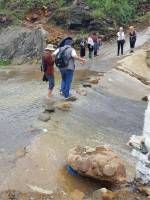 |
|
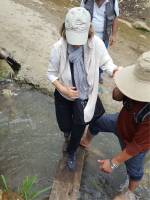 |
|
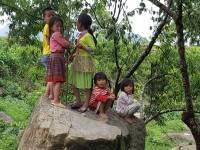 |
|
24 May
Reaching
the minority villages is not so easy, especially after a heavy night
rain we have to face some arduous stream crossing. With the help of our
guide we manage to remain dry, while flocks of kids watch us intently
|
|
|
|
|
|
|
|
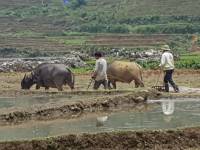 |
|
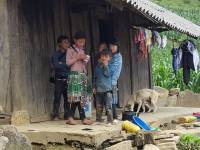 |
|
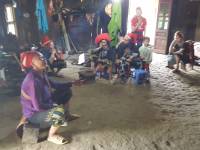 |
|
24 May
We
get a chance of watching from close up how these tribes lead their
daily farming works, we are also welcomed inside some of the huts where
the local families live in patriarchal style, grandparents, parents,
children and grandchildren all together
|
|
|
|
|
|
|
|
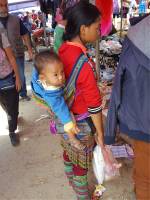 |
|
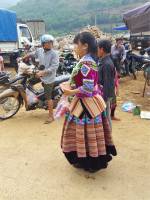 |
|
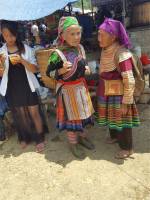 |
|
25 May
In
the morning we visit the Can Cau market, the last ethnic market of our
journey (Hong Kong's market will later be something completely
different). Can Cau's market takes place on the Saturdays and acts as
meeting point for all surrounding tribes. The ladies wear their best
costumes, especially the girls hoping to find there a husband
|
|
|
|
|
|
|
|
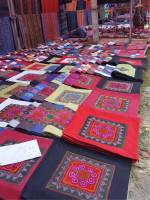 |
|
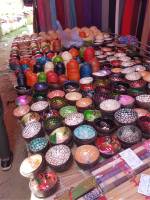 |
|
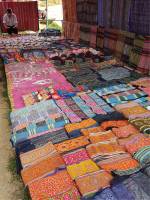 |
|
25 May
The
stalls displaying local handycrafts are a true feast of colors, and the
prices are absolutely affordable. One would gladly buy everything, but
then the common sense prevails "What am I doing with this once home?"
|
|
|
|
|
|
|
|
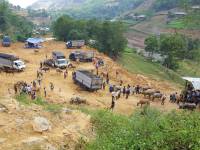 |
|
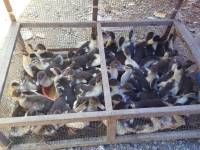 |
|
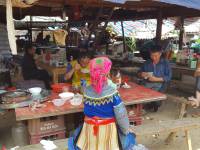 |
|
25 May
People
sells and buys also all kinds of animals, from the powerful buffalos to
the tender ducklings. Here too the local "Mc Donalds" are always crowded
|
|
|
|
|
|
|
|
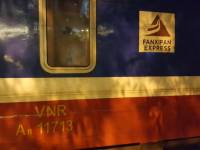 |
|
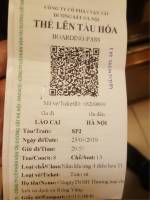 |
|
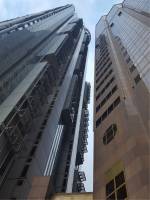 |
|
25/26 May
We
go back to Lao Cai, capital of the region, and in the evening we board
the night train to Hanoi. We avail of an air conditioned compartment
with four comfortable couchettes. The train ticket confirms the
reservation with a western style barcode. From Hanoi we take a short
flight to Hong Kong and the change from just 24 hours ago couldn't be
bigger, from the rice fields to the highest skyscrapers
|
|
|
|
|
|
|
|
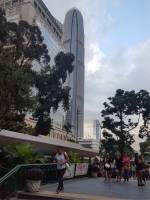 |
|
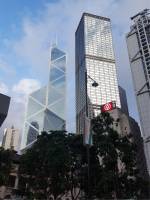 |
|
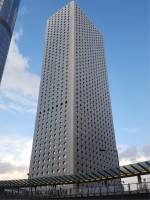 |
|
26 May
Though
Hong Kong too displays some characteristic Chinese style streets and
houses, what immediately catches the visitor's eye are the unbelievable
shapes of the skyscrapers, that make you feel like taking pictures of
each of them. Hong Kong is the city with the highest number of
skyscrapers in the world
|
|
|
|
|
|
|
|
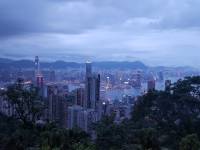 |
|
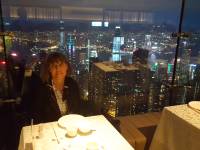 |
|
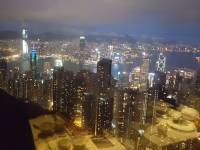 |
|
26 May
At
sunset we take a bus to Victoria Peak, the hill overlooking Hong Kong.
By good weather the sunsets from here are spectacular, unfortunately
today it's cloudy. We console ourselves with a good dinner in the
restaurant on the top, with a wonderful view on the city
|
|
|
|
|
|
|
|
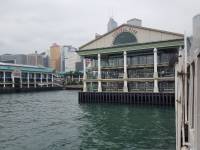 |
|
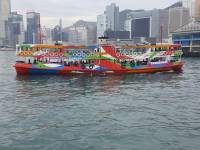 |
|
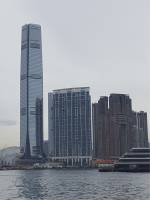 |
|
27 May
We
spend the morning on a visit to the southern part of the island,
unfortunately under an annoying drizzle. The afternoon is dedicated to
Kowloon, the part of the former British colony laying on mainland. The
ferry crossing of the bay offers us more wonderful views of the skyline
on both sides
|
|
|
|
|
|
|
|
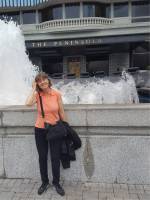 |
|
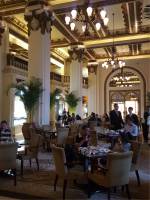 |
|
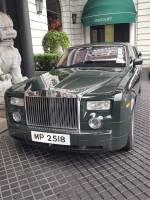 |
|
27 May
The
first mandatory visit in Kowloon is for the Peninsula, the most
historical and glamorous hotel in Hong Kong. For lifting their hosts at
the airport or driving them around, wherever they want to go, the hotel
has its own fleet of several Rolls Royce!
|
|
|
|
|
|
|
|
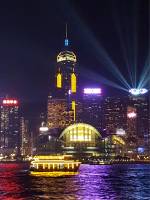 |
|
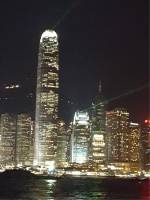 |
|
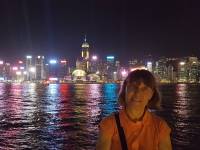 |
|
27 May
After
dinner we take a stroll on Kowloon's waterfront, contemplating the
light shows flashed from many of the skyscrapers on the opposite bank.
We couldn't find a better way to round off a fantastic journey!
|
|
|
|
|
|
|
|

